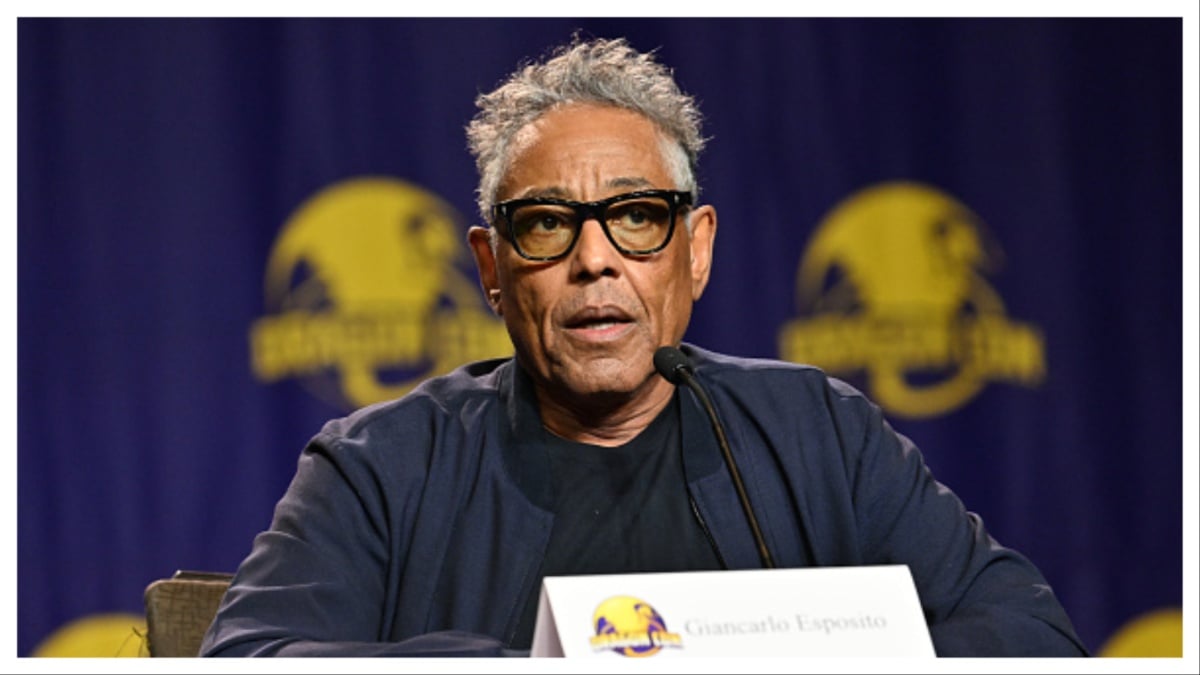There’s a good chance you know the renowned Giancarlo Esposito from one of his heel turns. He was vicious, murderous but refined drug kingpin Gus Fring in Breaking Bad and its prequel series Better Call Saul. He was the vicious, murderous Moff Gideon in The Mandalorian. He was in Far Cry 6, where he played a.. well you get it. With all this (fictional) evil in his creative veins, it’s not a stretch to think that he might have planned his own murder for insurance money. But is it true?
It’s not an easy road to be a creative person with a dream. You sacrifice so much; money, time, stability, security – the list goes on and on. Add kids to the mix and wave after wave of financial anxiety can drown you. All most people see is the success, seemingly overnight, but they don’t see the years and years of toil, of learning your craft. Esposito was not immune to this.
When he appeared on the Jim & Sam show, he illuminated a part of the creative journey that’s simply a blind spot to most people. Before his big break on Breaking Bad, he explained that he was forced to file for bankruptcy, twice. After that? A foreclosure on his home. He was married with four children at the time and he felt hopeless and trapped, which made him think about what he could do to provide for his family, even if that meant leaving this mortal plane for good.
“The first thing that had me think there was a way out, was my wife’s father — God rest his soul — Pops McManigal was in insurance,” Esposito said. “So I asked [my ex-wife], I started poking around, ‘How much am I insured for?’ And then she told me. My way out in my brain was, I said, ‘Hey, do you get life insurance, if someone commits suicide, do they get the bread?’ And my wife said, ‘Well, that’s kind of tricky.’”
For most life insurance policies, it is possible to get paid out after suicide but there’s usually a waiting period of one to two years. If said person commits the act before then, an insurance company may only pay back the premiums paid on the policy, per Bankrate.
This wasn’t going to help, so Esposito said he started “scheming.” He realized that if someone were to take him out, which is called “death by misadventure,” then his family would get paid right away.
“I had four kids. I wanted them to have a life. It was a hard moment in time. I literally thought of self-annihilation so that they could survive. That’s how low I was.” Fortunately, his family, the very ones he would be trying to help with this tragic act, convinced him that it wasn’t a viable option.
“I started to think, that’s not viable because the pain I would cause them would be lifelong, and lifelong trauma that would just extend the generational trauma with which I’m trying to move away from. The light at the end of the tunnel was Breaking Bad. I had a few little things before to start to recover, but Breaking Bad was the light.”
When he first started doing the role of Fring, it was only a guest spot. But that turned into another. Then he was offered a contract, which he turned down because he was afraid it would be lorded over his head, effectively hindering his chances of working on other potential projects that would come his way.”
Fortunately for him, everything turned out just fine, making his life story a tale of inspiration for many struggling artists in the industry by outlining that not giving up when your will is shaking is the key as you never know when things are going to turn around.
